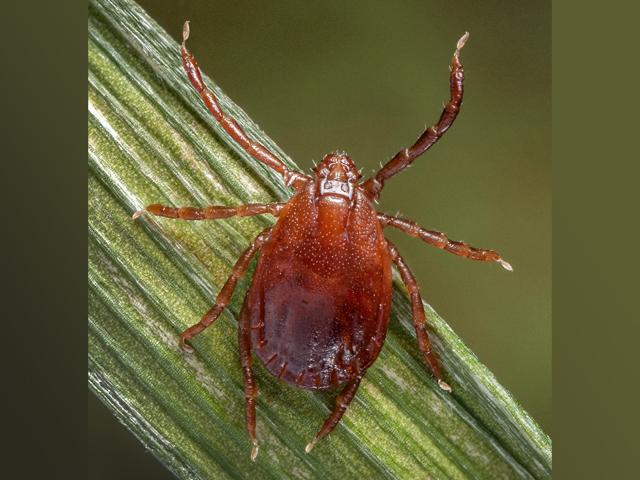Ask the Vet
New Tick Spreading Across US
READER QUESTION:
I've read there is a new tick in our area that is dangerous to cattle. What can you tell me about this?
DR. KEN MCMILLAN'S ANSWER:
Haemaphysalis longicornis, also known as the Asian longhorned tick (ALT), is native to eastern Asia. As of 2023, the Centers for Disease Control and Prevention reports it has been identified in Arkansas, Connecticut, Delaware, Georgia, Indiana, Kentucky, Maryland, Massachusetts, Missouri, New Jersey, New York, North Carolina, Ohio, Pennsylvania, Rhode Island, South Carolina, Tennessee, Virginia and West Virginia.
P[L1] D[0x0] M[300x250] OOP[F] ADUNIT[] T[]
ALT females do not need a mate to lay eggs and reproduce. A single female tick is enough for these parasites to gain a foothold in an area. They are not picky feeders and will infest cattle, horses, deer, pigs, sheep, goats, dogs, cats, bears, foxes, raccoons, rabbits and birds. Animals are often infested with large numbers of these ticks, weakening the host, reducing growth, pulling down body condition and dropping milk production. Infestation can even result in death.
These ticks carry diseases including theileriosis and babesiosis, which affect a wide range of domestic animals.
Control of the ALT is no different from that of native ticks. Close, thorough, and routine examinations are needed to identify the problem early. ALT ticks are small and easy to miss. When checking, focus on animals that are lethargic, have lost body condition or have patchy hair loss. Inspect new animals prior to introducing them to the herd. If ticks are found, consider submitting them to your state Extension service for identification.
When ticks are found, work with your veterinarian to develop a control program. This may include insecticidal ear tags, back rubs, dust bags, sprays, pour-on products, or a combination. All animals must be treated. Keep pastures mowed, clear up brush around pasture edges, and keep cattle out of wooded areas.
The risk to humans from the ALT is still being researched. There is little evidence at this time that the ALT carries diseases that can infect humans.
**
Editor's Note: Please contact your veterinarian with questions pertaining to the health of your herd or other animals. Every operation is unique, and the information in this column does not pertain to all situations. This is not intended as medical advice but is purely for informational purposes.
Write Dr. Ken McMillan at Ask the Vet, 2204 Lakeshore Dr., Suite 415, Birmingham, AL 35209, or email vet@progressivefarmer.com.
(c) Copyright 2023 DTN, LLC. All rights reserved.






